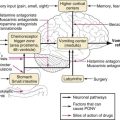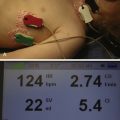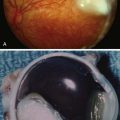Hospitals encounter increasing pressure to provide outstanding care while managing rising patient demands effectively. The best methods hospitals can boost efficiency are by choosing and employing intelligent devices meant to automate tasks, minimize mistakes, enhance communication, and maximize resource utilization.
Smart equipment selections assist healthcare establishments in addressing contemporary challenges and guarantee efficient, secure, and economical operations. This article examines how intelligent selection of equipment directly helps enhance hospital operations and why it is vital for the future of healthcare.
How Smart Equipment Choices Streamline Hospital Operations
Smart medical products assist hospitals in operating more efficiently. The appropriate tools enable individuals to complete their tasks more quickly and with fewer errors.
Utilizing new equipment can free up time for employees and assist them in providing improved care for patients. This also indicates reduced waiting times for both patients and their families. Selecting quality equipment results in improved outcomes and enhances collaboration among all hospital staff
1. Automating Routine and Repetitive Tasks
Hospitals have many tasks that need to be done manually often. These jobs take more time and take up staff energy. Now, smart equipment can perform these jobs on its own. This gives healthcare workers more time to look after patients. For example:
- Automated medication dispensing systems keep and give out medications safely. These machines need very little help from people. They help to lower wait times and cut down on mistakes with doses.
- Self-check-in kiosks help people register, change their details, and say yes to the time of their visit. They can do all this without help from staff.
- Robotic transport systems help move things like linens, food trays, lab samples, and medical supplies in the hospital. This saves staff time, so they can do other work.
- Automated lab analyzers test both blood and tissue samples.
- Digital documentation tools let people put things like vital signs and what they see about the patient right into electronic health records. There is no need for people to enter the data manually.
Automation helps reduce human mistakes, helps move patients through the system quicker, and makes the work process smoother the whole time.
2. Enhancing Patient Monitoring and Safety
Patient monitoring is very important in hospitals. Smart monitoring devices always check vital signs. They alert medical staff right away if they find anything unusual. This real-time data helps the team step in early, so there can be fewer problems for patients.
- Wearable sensors and wireless monitors give non-stop health data while not stopping patients from moving around.
- These devices update electronic health records (EHRs) by themselves. This means there is no need for people to type in the data by hand. It also helps reduce mistakes.
- Nurses get alerts and notifications sent right to their phones. This helps them get to emergencies faster.
Smart equipment helps hospitals by making it easier to check on patients at the right time.
3. Improving Communication
Good communication matters in hospitals. Smart tools that enable communication among individuals assist teams in collaborating quickly and effectively.
- Centralized communication platforms let staff send out messages, updates, and alerts quickly to everyone.
- Smart call systems place the most important calls at the top, so any urgent problem gets solved first, before other calls.
- Mobile devices with protected messaging apps let staff stay connected, even if they are away from their desks.
Good communication reduces delays and mistakes. This way, the work goes smoother, and patients get better care all the time.
4. Speeding up Diagnostics and Treatment
Sophisticated medical products utilizing AI and automation accelerate the testing process. It also facilitates quicker reading and comprehension of the outcomes.
- Imaging systems driven by AI quickly analyze MRIs and CT scans. They always get the specifics correct.
- Automated laboratory equipment gets samples set up much quicker than people do by hand.
- Hospitals also benefit from purpose-built equipment carts and adjustable stands that improve accessibility to diagnostic tools in real-time.
- Automated suction units like the DU-O-VAC, MRI-safe mobility aids such as bariatric wheelchairs and MRI IV poles, and custom gas delivery systems including cylinder holders and oxygen regulators further support efficient care delivery in complex environments.
These tools help get results faster. This means doctors can start treatment more quickly.
Quicker testing and treatment let people leave faster. It also helps the hospital care for more people at once.
5. Supporting Data-Driven Decision Making
Smart equipment produces a lot of useful data. Hospitals can use this data to make how they work even better.
- Real-time dashboards show key numbers like patient wait times, how much equipment is being used, and whether staff are there.
- Data analytics help to find slow spots in the workflow and see where things can get better.
- Ongoing feedback loops help with quality improvement plans.
Hospitals that use data from smart equipment can make better decisions. This helps improve how well things work at the hospital and also helps patients feel better.





